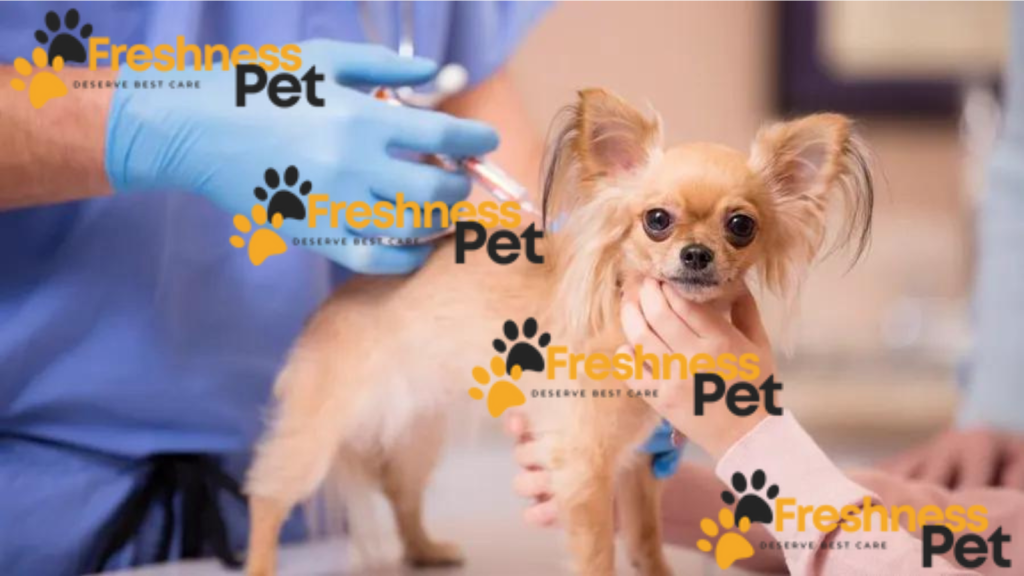

Pet Vaccinations
Pet vaccinations are very important to keep your pet safe from many dangerous and deadly diseases. All pets must get a rabies shot, but other vaccines can protect your pet from serious illnesses.
But how do you know which vaccination service your pet needs?
Well, In this guide I’ll explain different vaccines available for both dogs and cats, understand the benefits they offer, and address some frequently asked questions.
Why Are Pet Vaccinations Important?
These vaccines prepare their bodies to fight off serious illnesses before they have a chance to strike. Just like a superhero wouldn’t wait for trouble to arrive before gearing up, vaccinations work best when given proactively.
Here are some key benefits of pet vaccinations:
- Disease Prevention: Vaccines create immunity to specific diseases, significantly reducing the risk of your pet getting sick.
- Reduced Severity: Even if your pet encounters a disease they’ve been vaccinated for, the symptoms will likely be milder and easier to treat.
- Community Protection: By vaccinating your pet, you’re helping to create a “herd immunity” effect, protecting other vulnerable animals in the community.
- Peace of Mind: Knowing your pet is protected offers invaluable peace of mind, letting you focus on the fun stuff—belly rubs and playtime!
Pet Vaccinations Services
Now let’s move forward and discover the essential vaccinations recommended for both dogs and cats to ensure their health and well-being.
1. DA2PP
The DA2PP vaccine is essential for dogs. It protects against:
- Distemper: A severe viral illness affecting respiratory, gastrointestinal, and nervous systems.
- Adenovirus (Hepatitis): Causes liver disease and respiratory issues.
- Parvovirus: A highly contagious virus causing severe gastrointestinal problems.
- Parainfluenza: Another respiratory virus, often included in combination vaccines.
2. Leptospirosis
Leptospirosis is a bacterial infection that can affect both dogs and humans. It’s spread through water contaminated by infected animal urine. Symptoms include fever, vomiting, and kidney damage.
3. Bordetella
Bordetella bronchiseptica causes kennel cough, a highly contagious respiratory disease in dogs. Vaccination is especially important for dogs that spend time in kennels, dog parks, or grooming facilities.
4. Canine Influenza Virus
Canine Influenza Virus (CIV) causes respiratory infections in dogs. Symptoms include coughing, sneezing, and fever. The vaccine helps reduce the severity and spread of the virus.
5. Rabies Virus
Rabies is a fatal virus affecting the nervous system of all mammals, including humans. Vaccination is mandatory in many regions and is crucial for both pets’ and humans’ safety.
6. Lyme (Borrelia)
Lyme disease, caused by Borrelia burgdorferi bacteria, is transmitted through tick bites. It can cause fever, lameness, and kidney problems in dogs. Vaccination helps prevent this tick-borne illness.
7. FVRCP
The FVRCP vaccine is vital for cats, protecting against:
- Feline Viral Rhinotracheitis: Causes severe upper respiratory tract infections.
- Calicivirus: Another respiratory virus, causing mouth ulcers and pneumonia.
- Panleukopenia: A highly contagious and deadly virus, also known as feline distemper.
8. Feline Leukemia Virus (FeLV)
FeLV weakens a cat’s immune system and can lead to cancer. It’s spread through close contact between cats, such as grooming and sharing food or water bowls. Vaccination is crucial, especially for outdoor cats.
Frequently Asked Pet Vaccination Questions
What vaccines do puppies need?
Puppies need a series of vaccinations starting at six to eight weeks old. The core vaccines include DA2PP (Distemper, Adenovirus, Parvovirus, Parainfluenza) and Rabies. Depending on their lifestyle and risk factors, they may also need vaccines for Bordetella, Leptospirosis, Lyme disease, and Canine Influenza Virus.
How long does the rabies vaccine last in dogs?
The duration of rabies vaccine effectiveness depends on the type of vaccine used and local regulations. Generally, the first rabies vaccine is given at 12-16 weeks of age, followed by a booster one year later. After that, rabies vaccines are typically administered every three years.
How much are dog and cat vaccinations?
The cost of vaccinations varies based on location, the type of vaccine, and the veterinary clinic. On average, you can expect to pay:
- Dogs: $20 – $60 per vaccine, with annual boosters costing $50-$100.
- Cats: $15 – $45 per vaccine, with annual boosters costing $50-$100. Some clinics offer vaccination packages, reducing the overall cost.
Final Words
The vaccination of pets is not just advisable; it is actually part of the responsible pet ownership. This increases your pet’s immunity, protects other animals within a community, and leads to an enhanced happy and healthy life of the valued companion animal.
Be updated, be alert, and let Freshness Pet be your partner in taking your pets to a healthier level.
